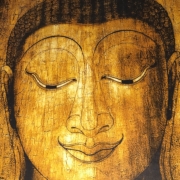What is it about mindfulness that reduces stress – ACCEPTANCE!
In my own personal journey of healing, as well as being a compassionate witness to the healing of others, I have come to realize that suffering comes from rejecting parts of ourselves that we either think or believe are unacceptable to others. When I first found myself in psychotherapy, I discovered that I was rejecting my emotional parts, because expressing emotions in my family of origin was either not acceptable or was overwhelming. However, the effort it took to try to reject these emotions from my life was exhausting, created a great deal of anxiety and was completely unsuccessful. In fact, the more I rejected them, the more my emotions would come out when I least expected!
It wasn’t until my therapist had me befriend my emotions that I was able to regulate them, honoring that they were a core source of my intelligence and would not want to reject them. Wow, what a concept, ACCEPT my emotions as part of this experience of being human. When I learned, which was a process, to allow those parts of me to express themselves, they no longer raged (read overwhelmed me). It was as if giving them air actually dissipated the energy, versus the thought that ignoring or avoiding them, not giving them air (AKA suffocating or stuffing them) would extinguish the flame/energy. And one of the main emotions I was trying to avoid feeling was fear. My family did not acknowledge fear and instead taught us to wear many different masks to not reveal such vulnerability. So the perfectionist and people-pleasing parts of me became overactive, to compensate for the scared little girl part that simply wanted to feel safe and accepted.
Along the way, I gathered some tools to deploy during the process of accepting all parts of myself, such as but not limited to deep breathing, yoga, journaling and guided meditation, as these tools helped me to welcome those parts of myself that I had been trying to avoid. These tools might be referred to as contemplative science, cognitive practices, or simply mindfulness. Now, I didn’t really know what it was about these practices that made them so effective for me, yet what I did know was after practicing them consistently for a period of time my anxiety went away. What I came to realize was that the power of rejection creates long-lasting wounds to the hearts of many and that acceptance is healing. Acceptance is a basic human need, as we are wired for connection and want to belong. When we believe parts of ourselves are unacceptable and try to reject or mask those parts, we create our own chronic stress and suffering that manifests in symptoms such as anxiety.
Now the research is helping us to understand the power of acceptance and how contemplative science practices support us in monitoring our present-moment experiences through the lens of acceptance, reducing biological stress in the body through emotion regulation and evidenced by a reduction in cortisol levels and systolic blood pressure reactivity. In addition, research is showing how Acceptance and Commitment Therapy (ACT) is becoming an empirically-supported treatment option for anxious youth. I think this is critical information to share at this time, as no one knows the lasting effects of the fear coming from the uncertainty the COVID-19 pandemic is creating. What we do know is that social isolation is not a healthy state of being for humans (think solitary confinement in prison) and we will all need tools to heal the traumas of this time.
If you would like to read more of the research on the healing effects of acceptance, click the boxes below:




